English Language
CURRICULUM FRAMEWORK
From 2020, a new English Language Syllabus has been introduced, starting from Primary One. The EL Syllabus 2020 focuses on the skills needed for the 21st Century, developing students as critical inquirers, discerning readers and empathetic communicators. The curriculum framework is shown below:
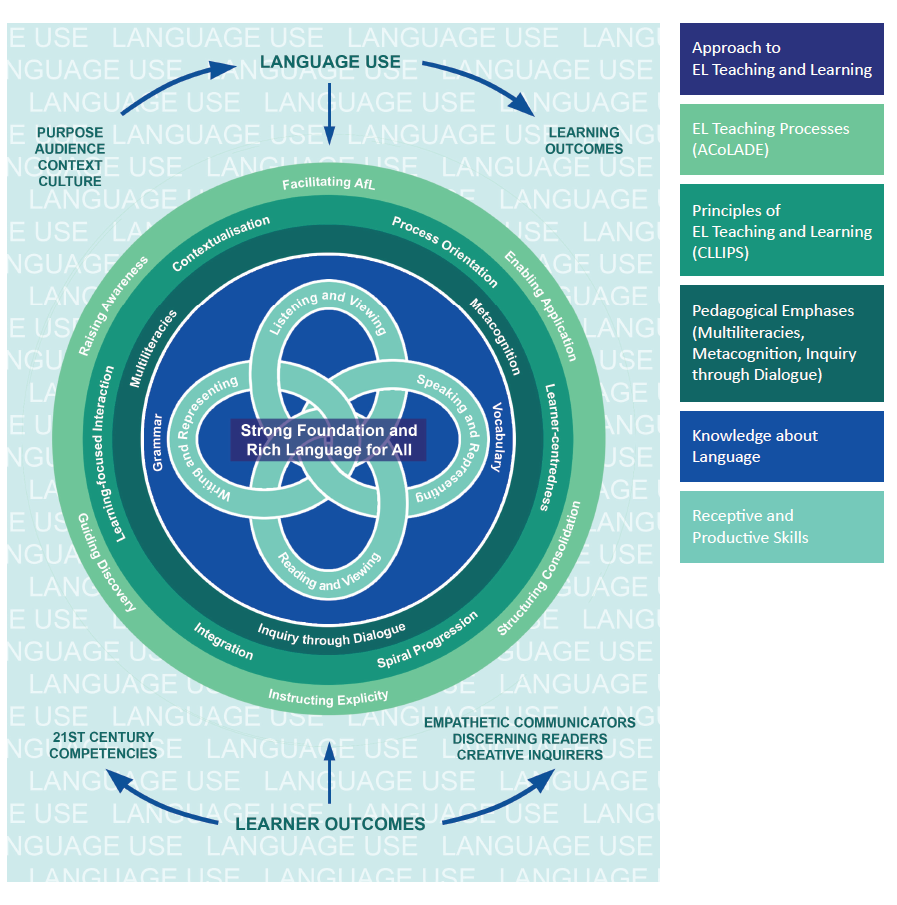
EXPERIENCES
P1 and P2 Learning Experiences
In line with our Curriculum Framework, the students engage in learning opportunities to discover their strengths, interests and improve in their areas of weaknesses. Students learn and use the EL skills to share their passion and personal experiences through activities such as the OPERAXpress, Reader’s Theatre and learning journeys.

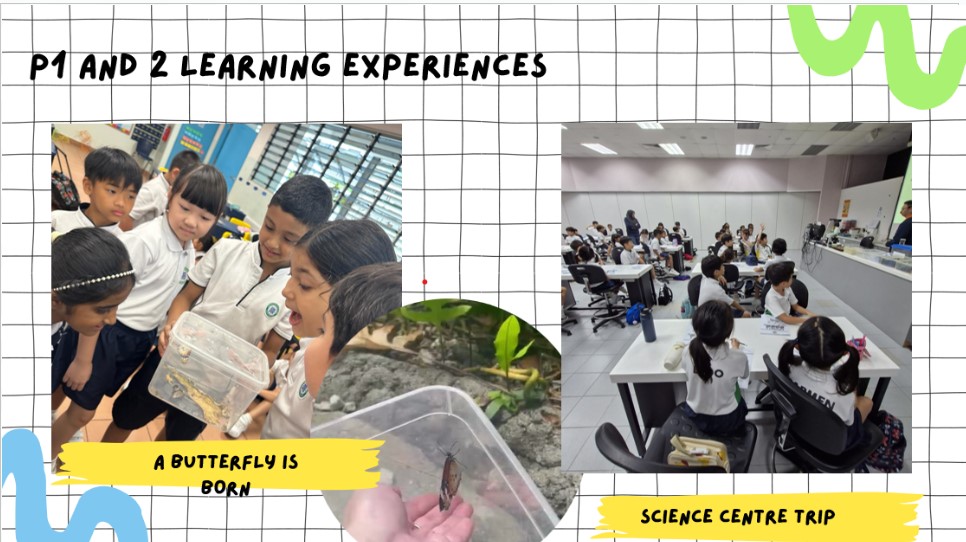
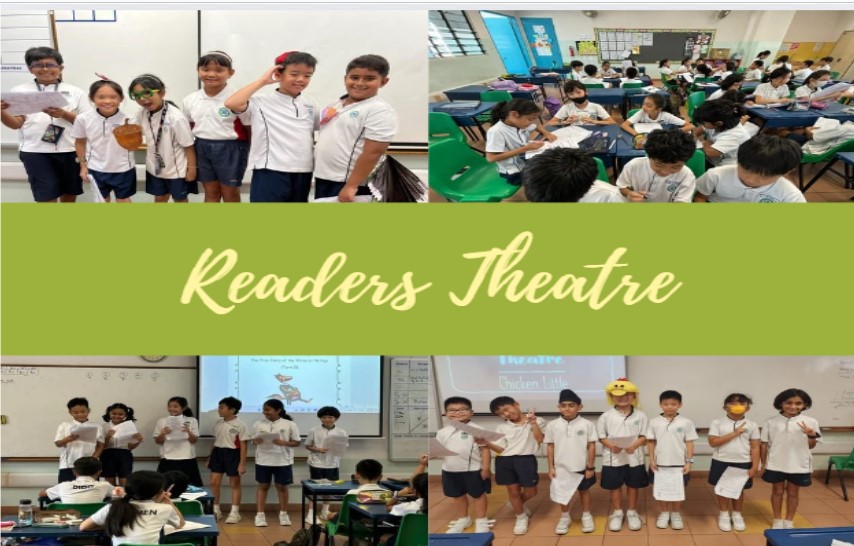
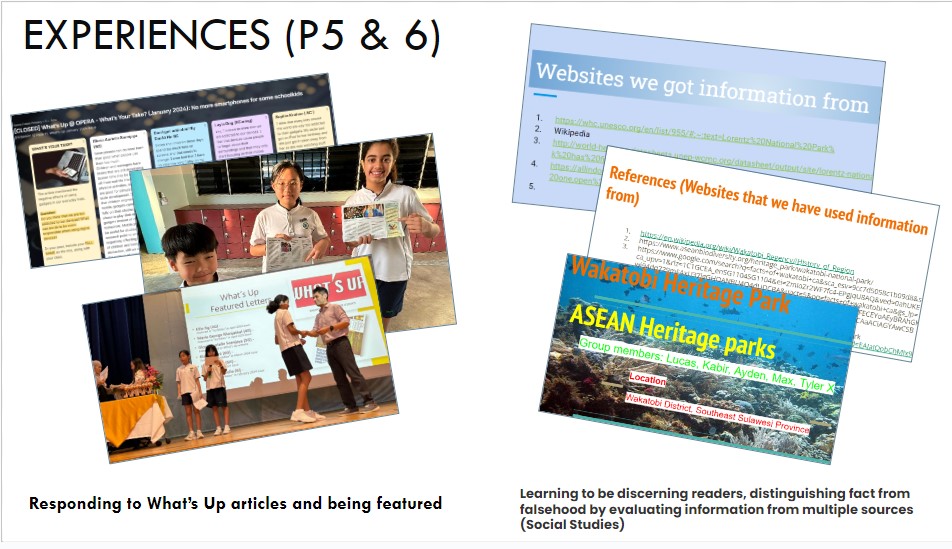
What’s Up
To help enhance the students’ awareness of global issues and current affairs, Primary 4 to 6 students receive a copy of the “What’s Up” Student newspaper every month. Teachers use the “What’s Up” newspaper in class to generate class discussions and get students to reflect on and think critically about global issues. Students can write in to the What’s Up publishers to share their views and perspectives on the issues reported and good letters will get published. Several of our students’ responses have been published over the past few years.
OEPS is proud to have a number of our students be featured in the What’s Up newspaper publication. As part of our English department program, Primary 4 to 6 students are encouraged to respond to articles in the publication. Students learn to be discerning readers by staying well informed and evaluate the information in the newspaper with a critical eye. Students are also exposed to current affairs around the world, widening their knowledge as global citizens.

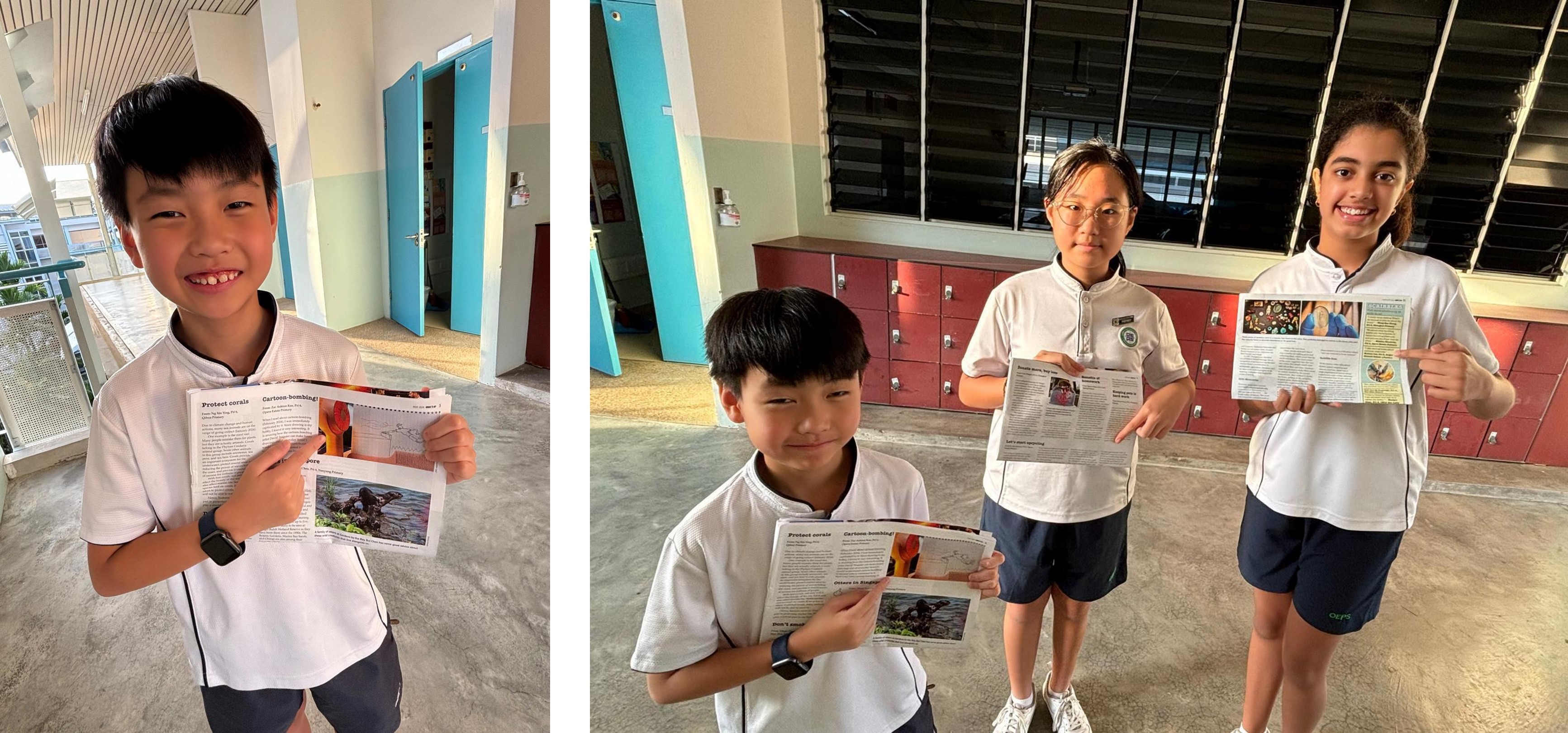

Newsmaker
The Primary 5 and 6 students have learned to produce news videos using the NewsMaker program, creating content to explore issues that are close to their hearts. The Upper Primary students have also attended a masterclass conducted by a ChannelNewsAsia journalist to learn how to be more effective communicators.
Language Week
During Language Week, students discovered the joy of reading through a variety of language activities. From dramas to poetry recitations to media reports, students used the language when presenting their information. They also participated actively in engaging English Language-themed recess activities such as Bingo or Snakes and Ladders.
The annual book Character day in Language Week was made extra special this year with the visit of Minister Chan. Check out his IG to find out what he thought about it.


Writer's Gallery
The Writer's Gallery is an engaging collection of students' writing from Primary 1 to Primary 6. It displays the creative journey of young minds through stories, poems, and reflections, showcasing their growth and imagination. Each piece, filled with unique perspectives and voices, highlights the evolving skills and artistic expressions of these budding writers, celebrating their literary achievements and inspiring their future endeavors.
SUPPORT PROGRAMMES
Learning Support Programme (LSP) (P1-P2)
A specialised early intervention programme aimed at providing learning support to pupils who enter Primary 1 with weak English language and literacy skills. Pupils are identified for LSP through a systematic screening process carried out at the beginning of Primary 1. The objective of the LSP is to equip pupils with basic literacy skills so that they could access learning in the regular classroom.
School-based Dyslexia Remediation Programme (SDR) (P3-P4)
A two-year intervention for Primary 3 and 4 students who are identified through a systematic screening process for dyslexia conducted at the end of Primary 2. The programme is conducted in small groups by trained school personnel using a remediation curriculum designed by MOE Reading Specialists. The curriculum has been designed taking into consideration the students’ learning profile and the contents of the mainstream English language curriculum.
Reading Remediation Programme (RRP) (P3-P4)
An intervention programme for Primary 3 and 4 students who did not meet the discharge criteria for LSP and who do not have dyslexia at the end of Primary 2 LSP. The RRP focuses on improving (i) word recognition and spelling, (ii) fluency, (iii) vocabulary and (iv) reading comprehension in the students.
EXTENSION PROGRAMMES
English Enrichment
The EL Enrichment is an extension programme targeting mainly Primary 4 and 5 students who display strong language skills and positive disposition towards learning. The programme involves weekly training sessions where students will develop 21st Century Competencies like research skills, critical thinking and creative thinking skills through communication skills in oracy and writing.
P4 Oracy Programme
The Primary 4 pupils are introduced to public-speaking skills and broadcast journalism in the course of the enrichment programme. During each session, they undergo training, engage in meaningful activities, work collaboratively and eventually showcase their learning through different platforms such as the school’s bi-weekly news programme – Good Morning OPERA. These sessions ultimately develop them into confident and articulate communicators.
P5 Writing Programme
The Primary 5 pupils are introduced to different forms of writing that promotes their creativity. They are given an opportunity to write narratives of different genres and they also have a go at coming up with their own poems and posters. As they further develop their confidence and proficiency in their writing, some pupils have also taken on the challenge of developing their writing portfolio.
USEFUL WEBSITES
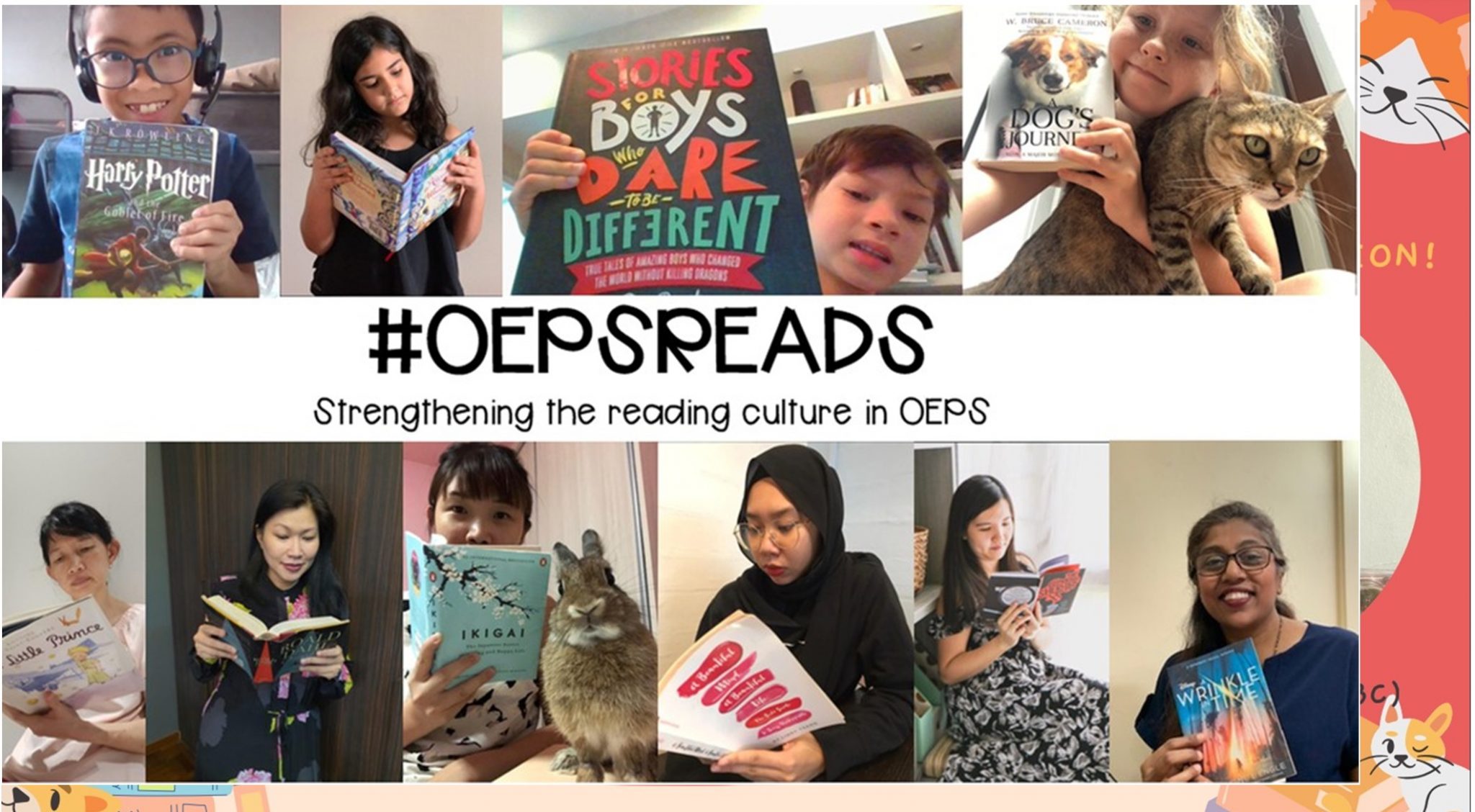
#oepsreads
Book Recommendations by students and teachers
https://padlet.com/operaestateprisch/oepsreads
Reading Resources
National Library Board
Students to log in using their NLB membership ID
http://www.nlb.gov.sg/discovereads/primary-resources/
Epic!
Students to log in using Epic! class code. Free access weekdays from 7am to 3pm.
https://www.getepic.com/

